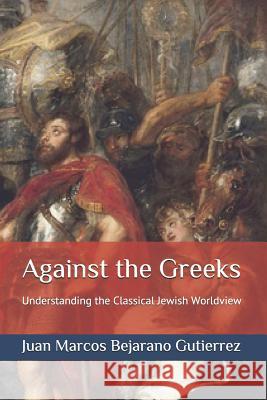Against the Greeks: Understanding the Classical Jewish Worldview » książka
Against the Greeks: Understanding the Classical Jewish Worldview
ISBN-13: 9781542308496 / Angielski / Miękka / 2017 / 90 str.
In the year 167 BCE, a small band of Judean priests sparked a conflict against the Seleucid Empire that would last a quarter of a century. The immediate trigger had been a sacrifice to idols about to be offered by a Jew at the order of Seleucid officials. The battle was not simply a violent reaction against foreign rule, however. The violence that erupted also revealed the profound disagreements between Jews over what Jewish identity entailed and how it should be lived out. While the military battles against the Seleucid Empire that followed were momentous, the heart of the clash was religious. Hellenism had spread throughout the Near East. It encompassed polytheistic ideas which easily absorbed other cultural ideas and religions. The Seleucids had no issues with Jews as a people. Judaism was monotheistic, and this presented a problem. Their problem was the unwillingness of many Jews to change their understanding of Judaism. Hence, the real war was one of ideas. The Judean rebels known as the Maccabees were ultimately successful in creating an independent Jewish state which lasted almost a century. As much as their struggle sought to return Judea to previous periods of Jewish spiritual and political autonomy, the Hasmonean rulers were themselves influenced by Greek thought, language, lifestyle, and education. Despite this, a commitment to the Hebrew Bible prevented many Jews from embracing Hellenism completely. The Hebrew Bible formed the basis from which classical Judaism developed. Understanding Jewish thought based on the Hebrew Bible, as well as later rabbinic writings helps explain the uniqueness of the classical Jewish worldview which continues to this day. This book provides an introduction to the classical Jewish worldview. .
Zawartość książki może nie spełniać oczekiwań – reklamacje nie obejmują treści, która mogła nie być redakcyjnie ani merytorycznie opracowana.











